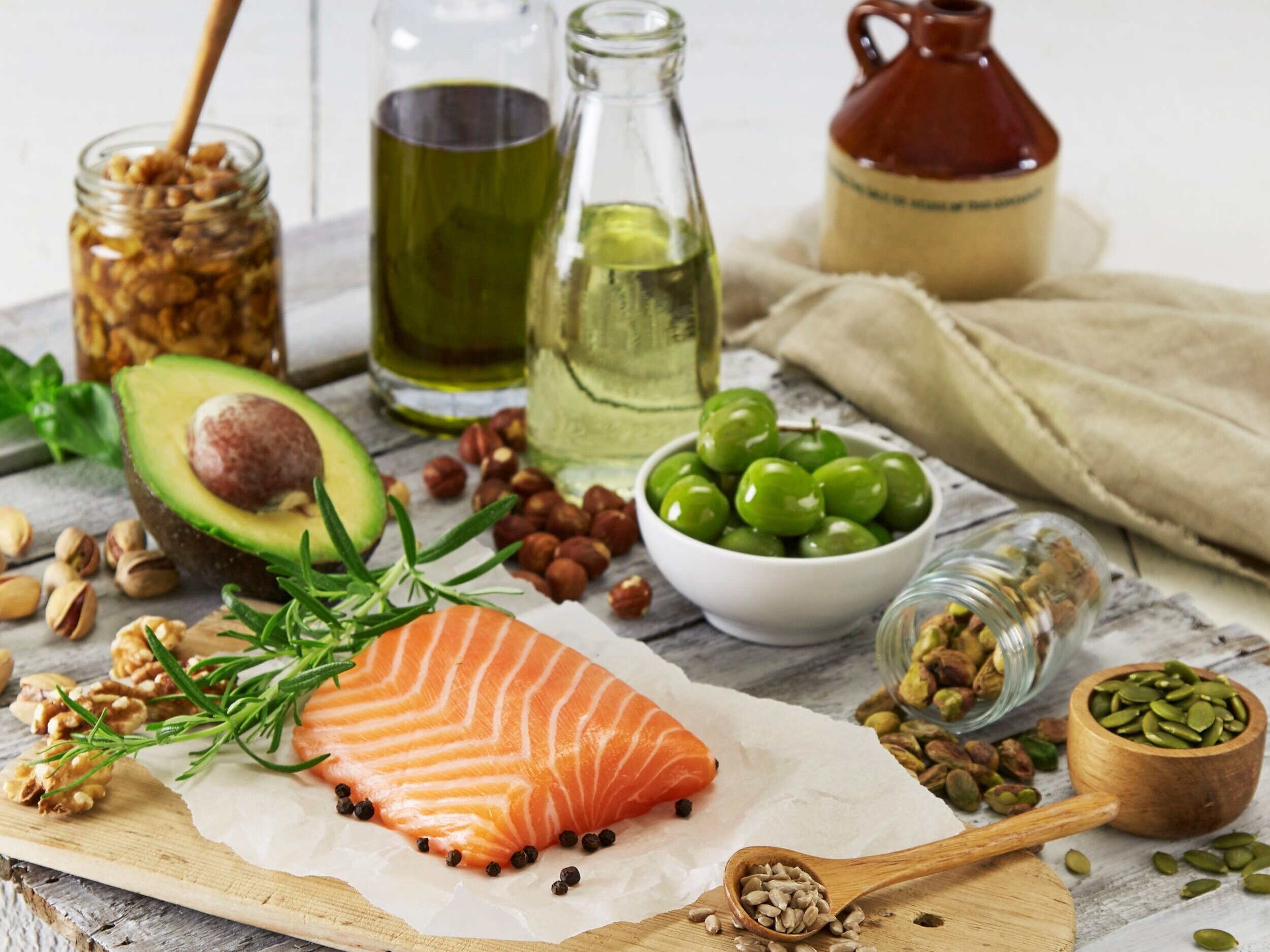What are the healthy fats?
Fat is our most concentrated form of energy. The adult brain is made up of as much as two-thirds fat. In addition to many functions of purely biological importance, the fat in our diets contributes to a feeling of fullness. Fats play an important role in cooking because they bind different flavours and make food moist and tasty. This is why many people prefer fatty products to lean ones.
The fats we usually talk about are cholesterol and triglycerides. Triglycerides consist of various fatty acids, both saturated and unsaturated. The latter can be divided into monounsaturated and polyunsaturated. The levels of these different types of fatty acids are important to the optimal functioning of the body. An incorrect composition can increase the risk of disease, which is why it’s not so important to know exactly how much fat you’re eating as it is to choose healthy fats. If you choose the amount according to the plate model and stick to good fats, you’ll make a sensible choice.
Saturated fat has a fixed consistency at room temperature and usually comes from land-based animals. Unsaturated fatty acids, such as monounsaturated and polyunsaturated fat, come from plants and the sea and are soft or liquid at room temperature. Polyunsaturated fats can be categorised as omega-3, omega-6, and omega-9 fatty acids.
The different types of fats and where they can be found:
• Saturated fat – in butter, milk, cream, fatty meats, and ice cream, among other things
• Monounsaturated fat – in olives and olive oil, avocados, almonds, cashew nuts, rapeseed oil, and chicken
• Polyunsaturated fat – Omega 3 – in oily fish and seafood, walnuts, rapeseed oil, chia seeds, and green leafy vegetables
• Polyunsaturated fat – Omega 6 – in maize oil and sunflower oil
The anti-inflammatory effect of healthy fats
There are two so-called essential fatty acids: linolenic acid (a type of omega-3 fatty acid) and linoleic (a type of omega-6 fatty acid). This means that the body cannot produce them itself and we must get them through our diet. What we get the least of nowadays is omega-3 fatty acids. Too much animal-based saturated fat adversely affects the body’s blood fats and can increase the risk of inflammation in the body. Similarly, monounsaturated fat from olive oil and avocados, for example, as well as omega-3 from oily fish, can have a positive effect on blood fats, reducing the risk of cardiovascular problems. In addition, they have been shown to have an anti-inflammatory effect on the body.
The important balance between omega-3 and omega-6 fatty acids
Omega-6 fatty acids are found in things like maize oil and sunflower oil. They’re often found in fast food products (which often contain these oils) and can both stimulate and inhibit inflammation. As a result, the important thing is not how much fat you eat but what fat you eat. In the past, people ate more omega-3 and less omega-6 than we do now, so there was more balance. Nowadays we eat considerably more omega-6, which is a contributing factor to the increasing degree of inflammation that many people experience, as well as to the increased risk of welfare diseases. An important step in reducing the degree of inflammation and thus the risk of disease is to enjoy more omega-3 in the form of oily fish such as salmon, mackerel, and sardines, as well as walnuts, green leafy vegetables, and rapeseed oil. It’s interesting to note that in animal trials, a higher intake of omega-3 and a lower intake of omega-6 have been able to counteract the development of breast, prostate, colon, and pancreatic cancers. In addition, it has been noted that chemotherapy becomes more efficient and effective. The potential positive effect of omega-3 on cancer cells is believed to be due in part to its anti-inflammatory ability which slows cancer development. In addition, omega-3 has been shown to increase the likelihood of cancer cells dying.
Pure oils contain 100 percent fat with varying quantities of the different fatty acids. By comparison, butter contains around 80 percent fat, most of which is saturated. Although oils contain more fat, many of them, such as rapeseed oil and olive oil, have healthier fatty acids. The best are cold-pressed oils with no additives in connection with extraction.
My advice:
Oily fish, avocados, almonds, and nuts, and rapeseed and olive oils are great to use as a base. Be careful with saturated fat and choose low-fat dairy products.



